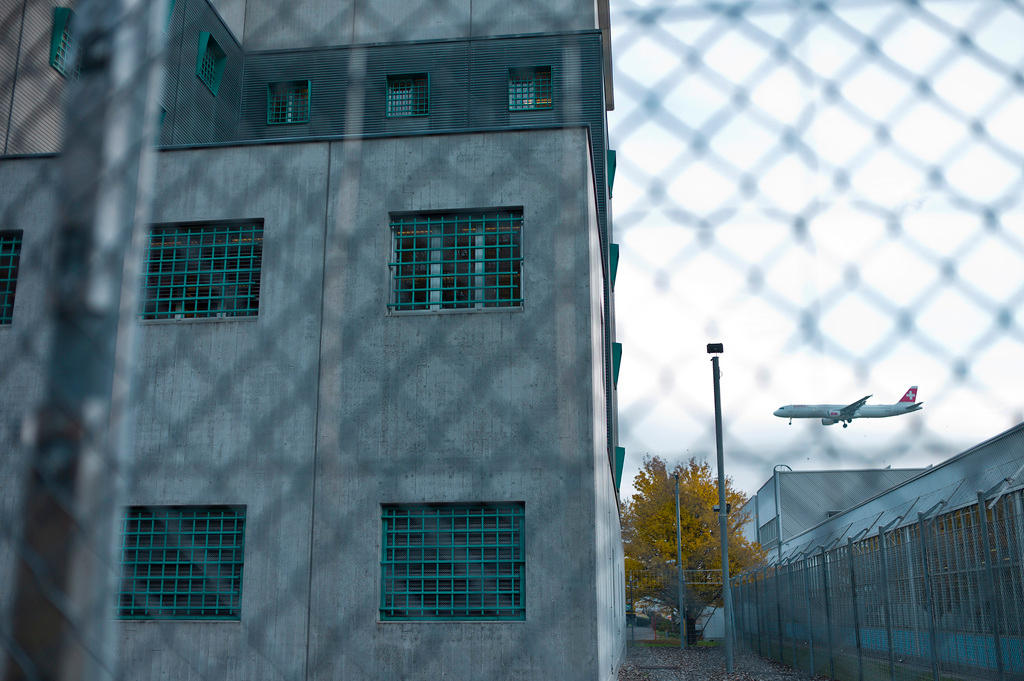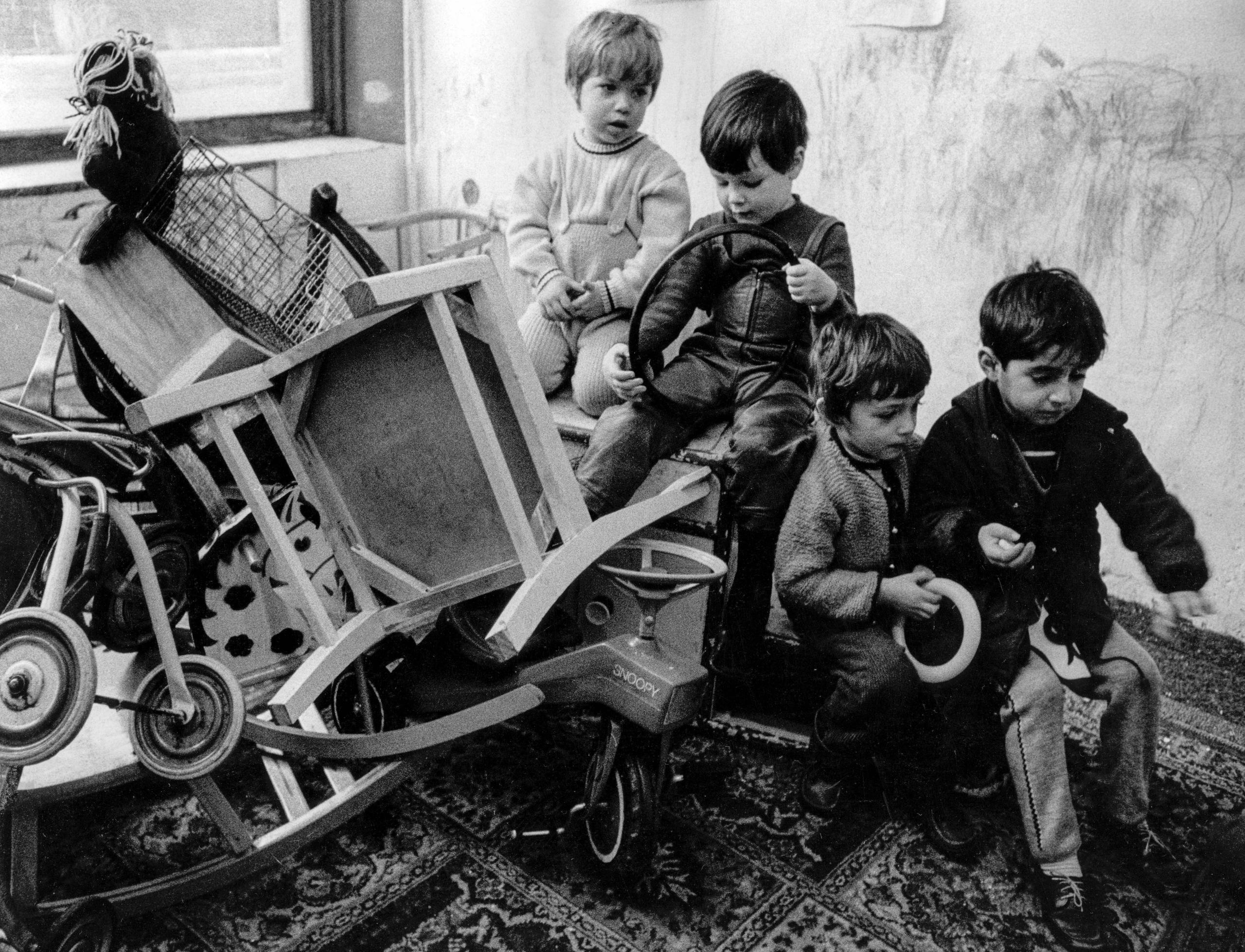Family separation under US immigration law has a long history
The US government’s separation of children and parents at the Mexican border has sparked disbelief around the world. But as Alexandra Dufresne explains, the separation of parents and children has been a part of US immigration law for a long time.
The Migration Policy Institute estimates that between the fiscal years 2009 and 2013, possibly as many as 500,000 parents of American children were deported. Separations stemming from everyday detention and deportation are more mundane perhaps than those in recent news. But the harm these separations inflict on children is nonetheless significant.
From 2003-2005, I worked as the Catholic Legal Immigration Network Detention Attorney at Boston College Law School. My students and I, along with a colleague from a local nonprofit, were responsible for giving “Know Your Rights” presentations to the roughly 1,000 immigrants and refugees detained in four local jails. We also represented as many individuals in Immigration Court as we could, as we were the only free lawyers for detainees. (There is no right to a government-appointed lawyer in immigration proceedings, even if one is detained, or a child).
Each day, we received frantic calls from US citizens about their loved ones, lawful permanent residents who had been detained pending deportation proceedings. The callers, usually American wives and mothers, would insist that their husbands could not be deported because they had American children. We’d have to explain that they were mistaken. Under US law, if you are a noncitizen, it does not matter how long you have lived in the US, whether you immigrated legally or as a child, or whether you have a US citizen spouse or children. If you are convicted of certain crimes (including theft with a sentence of one year, even if that sentence is suspended), you will be deported and barred from reentering the US. The harm to your US citizen children from your deportation is legally irrelevant. This is due to a 1996 law that radically broadened the categories of criminal convictions that render deportation essentially automatic.

The overwhelming majority of men we saw in immigration detention were black – long-term residents who had immigrated to the US legally from Jamaica, Haiti, the Dominican Republic, Cuba, and Brazil – and who had married US citizens and had US citizen children. Almost all had pled guilty to possession of small amounts of cocaine “with intent to distribute” – often not realizing that a plea deal would make deportation inevitable and separation from their children permanent. Occasionally, we would meet mothers in detention. These mothers, usually the primary caretakers of their children, faced a difficult choice. They could take their US children back to the countries they had left (including war-torn countries, if they entered as refugees), or leave their children with a relative in the US. If they did not succeed in finding a guardian for their children, their children would be placed in foster care.
Deportation of undocumented parents
There are an estimated 11 million or more people without legal immigration status (“undocumented immigrants”) in the US. There is no statute of limitations for deportation; undocumented people can be deported even after living in the US for 30 years. Moreover, the harm to US citizen children from an undocumented parent’s deportation is legally irrelevant. (There is one exception, for cases in which the deportation would result in “exceptional and extremely unusual hardship” to a US citizen child, far beyond the “ordinary” harm stemming from deportation. This is usually reserved for situations in which the American child needs medical care that is not available in his parent’s country of origin). I used to teach Immigration and Refugee Law and Policy at Yale. One of my best students moved to the US as a young child: he did not learn he was undocumented until he started applying to college. Unless temporary protections (“DACA”) issued under the Obama Administration are extended, this young man – like millions of others – will be at risk of deportation. Undocumented parents who fall outside the relatively narrow age and date requirements for DACA are already subject to deportation, regardless of the impact on their children.
Why deportations persist
Deportations of parents of US citizen children persist for many reasons. First, from my experience it’s clear that many Americans are not aware of the extent of the problem. Second, the majority of people deported are people of color, reflecting severe racial disproportionalities in all stages of the criminal and immigration law enforcement systemsExternal link. Third, and perhaps most fundamentally, neither immigrants nor children can vote. As a result, the laws do not properly take into account the harms to immigrants and their US citizen children.
Solutions
Are some of these separations justified in light of other policy goals of the immigration system, such as deterring people from entering unlawfully or deporting people deemed dangerous? Perhaps. One can certainly imagine cases in which the criminal convictions are so serious (child pornography, rape, murder) and the ties to US citizen children so weak (parental rights terminated) that the parent should be deported. One could also imagine cases in which the US citizen child and her undocumented parents’ connections to the US are so weak that it is reasonable to expect the parents to take the US citizen child back to the parents’ country of origin, assuming the family would not be in danger of persecution.
Reasonable people can disagree about where exactly the lines should be drawn. But there is one key element of a humane and rational immigration system that should appeal to all Americans. When determining whether to deport someone, the Department of Homeland Security and the Immigration Court should take into account evidence of the harm to their US citizen children. I do not mean that the interests of the American children should always take precedence, but rather that they should at least be weighed against the government’s interest in deporting the parent. In other words, we should abandon the legal fiction that the interests of children do not matter.
The reason is two-fold. First, it is a principle of our legal system that we do not (generally) punish children for the mistakes of their parents. Second, numerous studies show that the trauma to children of losing a parent to deportation has very serious health, social, educational, and economic costs, not only for individual children but also for society at large.
Friends new to these issues are shocked by what is happening at the border. As an American citizen, I too am appalled. But as a former detention attorney, I cannot say that I am surprised. And I cannot help thinking about my clients and my student – and how none of this feels new to them.
But the good news is that these separations are not inevitable. Congress can change the immigration law, just as it did in 1996. In order for this to happen, American citizens must channel the outrage expressed over separations at the border into political support for immigration reform that protects all US citizen children from the trauma of losing a parent to deportation.

More
Committee blasts detention of young rejected asylum seekers
United Nations Convention on the Rights of the Child
The Convention was adopted by the UN General Assembly in 1989 and came into force a year later. Currently, every member country of the UN has ratified it with the exception of the United States. It was ratified in Switzerland in 1997, where it entered into force the same year.
The Convention sets out child rights in 54 articles and two Optional Protocols. These optional protocols have been ratified by Washington: the involvement of children in armed conflict and the protocol on the sale of children, child prostitution and child pornography.
The four core principles of the Convention are non-discrimination; devotion to the best interests of the child; the right to life, survival and development; and respect for the views of the child.
In the preamble to the Convention, the importance of family is spelled out:
Recognizing that the child, for the full and harmonious development of his or her personality, should grow up in a family environment, in an atmosphere of happiness, love and understanding … Bearing in mind that, as indicated in the Declaration of the Rights of the Child, “the child, by reason of his physical and mental immaturity, needs special safeguards and care, including appropriate legal protection, before as well as after birth”.
Opinion series
swissinfo.ch publishes op-ed articles by contributors writing on a wide range of topics – Swiss issues or those that impact Switzerland. The selection of articles presents a diversity of opinions designed to enrich the debate on the issues discussed.

In compliance with the JTI standards
More: SWI swissinfo.ch certified by the Journalism Trust Initiative



You can find an overview of ongoing debates with our journalists here. Please join us!
If you want to start a conversation about a topic raised in this article or want to report factual errors, email us at english@swissinfo.ch.